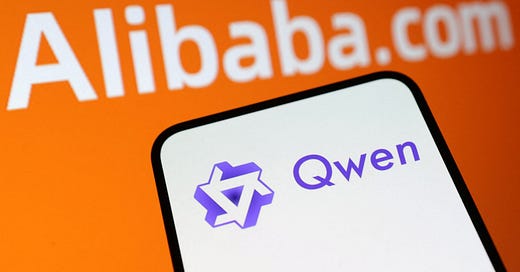Why Alibaba is a Buy for Muslim Investors
High-tech breakthroughs are propelling the Chinese e-commerce giant to renewed growth.
If you have read Tayyib Finance before, you already know that I am an avid proponent of investing in China (US tariffs notwithstanding).
There has been a lot of market movement recently, mainly on the back of tech stock gains. The Hang Seng Tech Index of the largest Chinese technology companies is up 30% so far this year, which has to do with the government returning to a more pro-tech stance and its expansionary policy moves.
Among the big names picking up solid gains is Alibaba, a tech veteran and something of a bellwether for the Chinese market. It also happens to be a halal stock. In this post, I look at its prospects and whether it is the right time to buy.
Halal Stock: Alibaba Group (NYSE:BABA)
Market cap: US$299.5b
Revenue growth rate: 11.8%
Return on equity: 10.5%
Net margin: 12.3%
Debt-to-equity ratio: 21.1%
Cash flow-to-debt ratio: 68.8%
Price-to-earnings ratio: 17.7x
For the longest time, Alibaba was only known for its e-commerce business: still the biggest in China (with a 45% share), more than twice the size of Amazon’s retail operations, and growing. But the fact is, it has always been evolving, now a full-fledged technology conglomerate.
Its latest forays and focus areas are cloud computing and artificial intelligence, where Alibaba shows no sign of slowing. It has just announced a massive investment plan of US$52b in AI and cloud infrastructure — more than the company’s entire spending within these fields over the past decade.
In cloud, Alibaba already holds the top position in the country, with a 37% share. And it is a force to reckon with in AI: the newest version of its open-source model Qwen reportedly outperformed DeepSeek and GPT-4o on a number of benchmarks. Apple’s adoption of Alibaba’s AI tech for iPhones in China has added credibility.
Financials
Despite persistent headwinds — first during Covid, then due to the government crackdown on the tech industry and the economic slowdown in China — Alibaba has stayed on top of things.
It has an exceptionally strong balance sheet, with little debt and a large pile of cash. These are backed by reliable operating performance: for Alibaba’s scale, revenue growth is healthy and stays mostly in the high single digits. Notably, AI-related products have generated triple-digit growth for six consecutive quarters. Profit margins are improving, driven by efficiency gains.
It is these robust financials that have allowed Alibaba to start paying dividends — even in the midst of stock market troubles — and to buy back shares in mass. The twelve-month buyback yield is close to 8%.
Risks
Being a Chinese stock, Alibaba is naturally exposed to geopolitical risk. That primarily impacts its ambitions for international expansion. But Alibaba has spread out quite extensively throughout Asia, across locations which are not directly affected by the US-China trade row. Beyond retail, the company is investing in data centres.
Then there are the competitive challenges, in both core e-commerce and the AI space. Chinese online retailers like Pinduoduo and BydeDance are nimbler and have established niches. Alibaba is also being rattled by local peers’ advancements in AI: tech major Tencent, for one, might challenge Alibaba's cloud market position.
Valuation
Although the stock has recovered significantly from the lows of the last few years, the valuation discount holds. Alibaba (NYSE:BABA) has gained 80% in price return over the past year, but it is still down 37% for the five-year period. The Price/Earnings ratio is currently at 18x, way below Amazon’s (NASDAQ:AMZN) 37x.
(Alibaba is also listed on the Hong Kong Stock Exchange under the ticker “9988”.)
Takeaway
As I see it , the big concerns about Chinese tech stocks have largely resolved themselves. The government has turned supportive of the industry; Alibaba’s Jack Ma, in particular, is back in favour with the Chinese party bosses. The economic stimulus measures are more abundant than ever, which is a huge policy shift for China. Geopolitics will remain a risk, but Chinese conglomerates, Alibaba included, are more prepared now — think domestic innovation and diversification ex-US — than they were during Trump era 1.0.
For these reasons as well as substantial potential in cloud and AI, I would recommend to Muslim investors to consider Alibaba as a halal stock investment.
Disclaimer: Nothing you read on Tayyib Finance constitutes financial advice. Nor is there a guarantee of Shariah compliance of any particular stock at any particular time, since ‘Shariah compliance’ is fluid depending on the provider of judicial opinion and must be regularly affirmed. Do your own research.
Here is another Chinese tech high-flyer I covered before:




